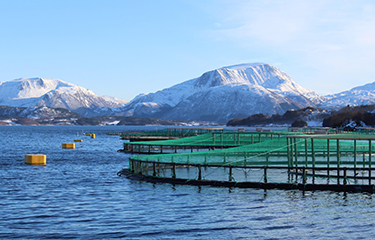A cross-party majority in Norway’s Parliament has reached agreement on the government's new aquaculture policy, opting to retain the current biomass and traffic light system for regulating fish farming, while introducing incentive mechanisms to drive environmental improvements.
Under the deal, the existing system based on maximum allowed biomass (MTB) and color-coded regional production limits will remain in place until a new regulatory framework is developed and adopted.
In the meantime, lawmakers have agreed to introduce a new environmental technology scheme designed to reward companies that reduce their ecological footprint.
The coalition has also called for a feasibility study on a new allocation model for production quotas, potentially linking them to company-specific MTB levels.
Additionally, the agreement mandates an analysis of how removing the MTB system altogether would affect company valuations, ownership structures and financing conditions.
The compromise was welcomed by six political parties, including the governing Labor Party as well as the Conservative Party, Centre Party, Progress Party, Socialist Left (SV), and the Liberal Party from the opposition. The agreement paves the way for a formal vote scheduled for next Thursday.
“This broad agreement seriously addresses environmental challenges while safeguarding jobs along the coast,” said Erling Sande of the Centre Party, who heads the Parliament’s business committee. “For us, protecting small and medium-sized producers and ensuring income for local communities where value creation takes place was key.”
Rune Stostad, the Labor Party’s lead negotiator on the aquaculture bill, praised the cross-party effort.
“I want to thank the other parties for constructive and solution-oriented dialogue throughout the process,” he said.
From the Socialist Left, MP Kari Elisabeth Kaski hailed the agreement as a breakthrough.
“We finally brought the aquaculture bill ashore. This is a big day for life in the fjords,” she said. “Until now, the industry has expanded with almost no environmental constraints. That finally changes with this agreement, and SV has helped secure the majority for it.”
Among the specific provisions retained is the species restriction clause in aquaculture licenses, which limits what types of fish can be farmed under each permit.
Environmental parties dissent
Not all parties backed the compromise. The Green Party (MDG) and the far-left Red Party (Rodt) refused to sign on, criticizing the agreement as too soft on the industry.
“It’s a slowdown and deferral of the main thrust of the aquaculture reform,” said MDG’s Rasmus Hansson. “The majority says the environment is the goal, but what we’re really doing is more studies and fewer decisions.”
Geir Jorgensen of the Red Party echoed the criticism, saying his party could not support a policy that enables further growth in an industry still plagued by escape events, sea lice, pollution and high mortality.
“Salmon farming must move to closed-containment systems now, and production volumes must be reduced,” said Jorgensen, who represents Nordland and sits on the business committee.
The final vote on the bill is scheduled for next Thursday.
Source - https://www.intrafish.com













